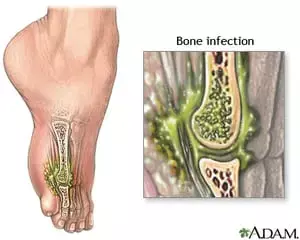- Home
- Medical news & Guidelines
- Anesthesiology
- Cardiology and CTVS
- Critical Care
- Dentistry
- Dermatology
- Diabetes and Endocrinology
- ENT
- Gastroenterology
- Medicine
- Nephrology
- Neurology
- Obstretics-Gynaecology
- Oncology
- Ophthalmology
- Orthopaedics
- Pediatrics-Neonatology
- Psychiatry
- Pulmonology
- Radiology
- Surgery
- Urology
- Laboratory Medicine
- Diet
- Nursing
- Paramedical
- Physiotherapy
- Health news
- Fact Check
- Bone Health Fact Check
- Brain Health Fact Check
- Cancer Related Fact Check
- Child Care Fact Check
- Dental and oral health fact check
- Diabetes and metabolic health fact check
- Diet and Nutrition Fact Check
- Eye and ENT Care Fact Check
- Fitness fact check
- Gut health fact check
- Heart health fact check
- Kidney health fact check
- Medical education fact check
- Men's health fact check
- Respiratory fact check
- Skin and hair care fact check
- Vaccine and Immunization fact check
- Women's health fact check
- AYUSH
- State News
- Andaman and Nicobar Islands
- Andhra Pradesh
- Arunachal Pradesh
- Assam
- Bihar
- Chandigarh
- Chattisgarh
- Dadra and Nagar Haveli
- Daman and Diu
- Delhi
- Goa
- Gujarat
- Haryana
- Himachal Pradesh
- Jammu & Kashmir
- Jharkhand
- Karnataka
- Kerala
- Ladakh
- Lakshadweep
- Madhya Pradesh
- Maharashtra
- Manipur
- Meghalaya
- Mizoram
- Nagaland
- Odisha
- Puducherry
- Punjab
- Rajasthan
- Sikkim
- Tamil Nadu
- Telangana
- Tripura
- Uttar Pradesh
- Uttrakhand
- West Bengal
- Medical Education
- Industry
3 weeks Antibiotic therapy okay for diabetic foot osteomyelitis instead of 6 weeks

Researchers investigated whether a short (3 weeks), compared with a long (6 weeks) duration of systemic antibiotic treatment is associated with non-inferior results for clinical remission and adverse events (AE) in patients with diabetic foot osteomyelitis (DFO) who underwent surgical debridement.
They have found that the duration of antibiotic treatment for diabetic foot osteomyelitis (DFO) can be reduced from 6 to 3 weeks, The study has been published in Clinical Infectious Diseases on 26 November 2020.
Ilker Uçkay, MD, head of infectiology and clinical research in the department of orthopaedics at the University of Zurich, told "Antibiotic stewardship in the field of diabetic foot osteomyelitis (DFO) is a major component of antibiotic overuse in the world,"
The optimal duration of antibiotic treatment of osteomyelitis complicating foot wounds in non–surgically treated diabetic patients is currently unknown. International guidelines recommend ≥3 months of antibiotic therapy in the absence of surgery or in case of residual dead bone after surgery. Antibiotic use encourages antimicrobial resistance, incurs a financial cost, and may cause drug-related adverse effects. A recent study found that antibiotic therapy, mainly rifampin combinations, directed by bone culture results (compared with empiric antibiotic therapy) was associated with a significantly higher rate of remission of bone infection after a mean of 12 months of follow-up. A reduction in treatment duration might help to alleviate the drawbacks of the medical approach in these patients. Therefore, researchers of Geneva university hospital conducted a study to investigate whether a short (3 weeks), compared with a long (6 weeks) duration of systemic antibiotic treatment is associated with non-inferior results for clinical remission and adverse events (AE).
It was a prospective, randomized, non-inferiority, pilot study in 93 patients with DFO who have undergone surgical debridement. Patients were randomly assigned to either a 3-week (n=44) or a 6-week (n=49) course of antibiotic therapy with the minimal two months duration of follow-up after the end of therapy. The researchers compared outcomes between the groups using Cox regression and noninferiority analyses.
Key findings of the study were:
♦In the intention-to-treat (ITT) population researchers found, remission occurred in 37 (84%) of the patients in the 3-week arm compared with 36 (73%) in the 6-week arm.
♦They reported a similar number of adverse events in both groups (17/44 vs. 16/49).
♦They noted the remission incidences in the per-protocol (PP) population (33/39 vs. 32/43) were also similar.
♦On multivariate analysis, they found treatment with the shorter antibiotic course was not significantly associated with remission (for the ITT population: HR = 1.1; for the PP population: HR = 0.8)
The authors concluded, "In this randomized, controlled pilot trial, a post-debridement systemic antibiotic therapy course for DFO of 3-weeks gave similar (and statistically non-inferior) incidences of remission and AE to a course of 6 weeks".
Medical Dialogues Bureau consists of a team of passionate medical/scientific writers, led by doctors and healthcare researchers. Our team efforts to bring you updated and timely news about the important happenings of the medical and healthcare sector. Our editorial team can be reached at editorial@medicaldialogues.in.
Dr Kamal Kant Kohli-MBBS, DTCD- a chest specialist with more than 30 years of practice and a flair for writing clinical articles, Dr Kamal Kant Kohli joined Medical Dialogues as a Chief Editor of Medical News. Besides writing articles, as an editor, he proofreads and verifies all the medical content published on Medical Dialogues including those coming from journals, studies,medical conferences,guidelines etc. Email: drkohli@medicaldialogues.in. Contact no. 011-43720751


